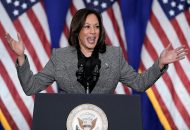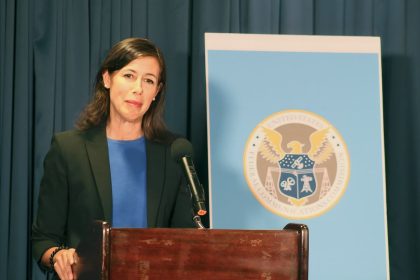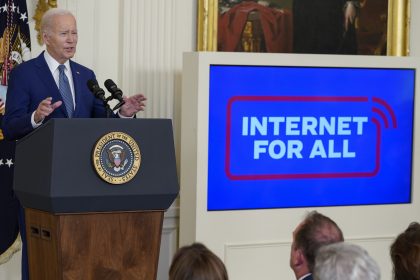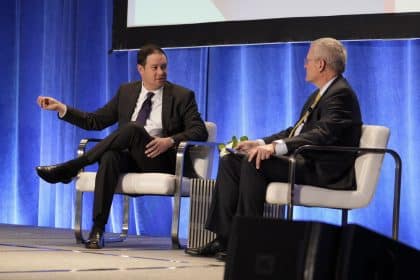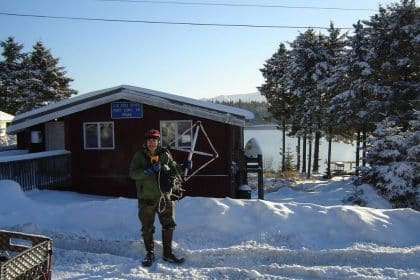Four States to Share $500M in Broadband Expansion Funding
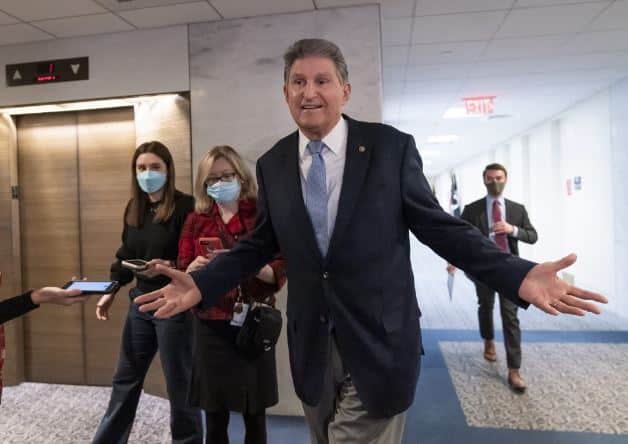
WASHINGTON — Four states — Louisiana, New Hampshire, Virginia and West Virginia — will receive more than $500 million in funding for broadband expansion projects under the auspices of the $10 billion Capital Projects Fund created as part of the federal government’s $1.2 trillion COVID-19 relief program.
To get the funding, each of the states submitted plans to the Treasury Department, demonstrating how the funding would fill critical needs in communities currently underserved or unserved by broadband companies.
Several more states are expected to be awarded funding in the coming month. The deadline for them to apply is Sept. 24.
During a conference call with reporters late Monday afternoon, Gene Sperling, a senior advisor to President Joe Biden, described the pandemic as a one-of-kind “national teaching moment.”
The lesson, he said, is “we cannot have equal economic and educational opportunity unless all Americans and all regions, from urban to rural America, have access to high-speed, affordable internet service.”
Sperling, whose formal title is White House American Rescue Plan coordinator, went on to say that connectivity at home and in libraries and in classrooms is not enough.
Americans need connectivity “with adequate speed so that parents can work [from home] at the same time their children study.”
With Monday’s announcement, West Virginia is set to receive $136.3 million in Capital Projects Fund money, with $219.8 million going to Virginia, $50 million to New Hampshire and $176.7 million to Louisiana.
“The awards today … will connect hundreds of thousands of Americans and small businesses to high-speed internet,” Sperling said.
Treasury Chief Recovery Officer Jacob Leibenluft, who was also on the call with reporters, said when the roll out of the broadband program is complete, it will “help close the digital divide and level the playing field for all American families and businesses.”
“That’s why we made it a priority to work with Congress to ensure the capital projects fund was included in the American Rescue Plan,” he said.
Also on the call were Sens. Joe Manchin, D-W.Va., and Mark Warner, D-Va., who spoke at length about how the funding will benefit their respective states.
Like Sperling, Manchin began by reflecting on the pandemic and how Americans had to adjust to “a new way of working, and a new way of learning, and even a new way of living in their homes.”
“Internet connectivity has become an essential part of our lives,” he said.
Manchin then recalled an experience he had as a member of the Senate Veterans’ Committee. During one hearing, the representatives of a number of veterans groups spoke of how access to telehealth would greatly benefit their community.
“Well, guess what, you have to have internet connectivity to have telehealth, and we simply didn’t have that in many rural parts of West Virginia,” Manchin said. “I actually had to secure a waiver for doctors in some communities so they could be reimbursed for telephone calls.
“That experience vividly illustrated what you’re missing out on if you don’t have access to high-speed internet, and I’ve made clear to my colleagues since then that we simply can’t help folks recover from the pandemic or encourage new economic development if we don’t have connectivity. It’s that simple.
“When you think about reliable, affordable, dependable, broadband access, it’s critical, absolutely critical, for West Virginians and anybody in America to do their jobs, complete their homework, keep up with their health care appointments and to compete in a 21st century economy,” Manchin said.
In West Virginia, the state Department of Economic Development got busy as soon as the funding opportunity was unveiled last September.
It eventually came up with four distinct programs for which it requested funding, with three ultimately being approved.
These included a program aimed at extending existing network lines, another to expand the deployment of broadband infrastructure, and a third to provide matching broadband funding incentives.
While all this was going on, the Office of Broadband within the West Virginia Department of Economic Development developed new and more reliable broadband maps to better identify the unserved and underserved areas in the state.
Virginia, Louisiana and New Hampshire all followed similar paths to achieving funding success.
“Without efforts to bring connectivity to rural areas, they will continue to lag behind,” Manchin said. “We need to take [the] transformative approach towards broadband that we took towards electricity in the 1930s.”
For the purposes of the program, the Treasury Department defines high-speed internet as a service that allows for download and upload speeds of up to 100 megabits per second.
Internet service providers in states receiving Coronavirus Capital Projects Fund dollars must participate in the Federal Communications Commission’s Affordable Connectivity Program, which provides up to $30 per month in discounts to low-income families to help pay for internet service.
Warner spent 20 years in the telecom and wireless industry before running for the Senate, and has long been an advocate for broadband connectivity. During the conference call he recalled how in the 1990s, the promise was that we would all live in an interconnected world.
“Candidly, in our country, we have not done a very good job in making that a reality,” Warner said. “As a matter of fact, many federal efforts over the past 30 years have been kind of hamstrung and not fully put together.
“Too often, we would put out dollars and part of a network would be partially built out and never get to completion or become fully operational. I’m not sure we’ve used all of our federal dollars well in the past.
“But COVID drove home the point that broadband is not just a nice thing to have, it’s an economic necessity,” he said.
Despite the very positive feelings of the participants on the conference call, Warner said this should also be a time of being realistic in one’s expectations. “Making high-speed broadband available to a rural community does not guarantee that community will enjoy economic success, but the failure to have that connectivity will guarantee it no economic future.”
Warner also emphasized the importance of the federal government continuing to engage with its state and private sector partners as the broadband rollout gets underway.
“We have to be diligent to make sure we don’t repeat the mistakes of the past,” he said. “[The funding] announced today is a hugely significant down payment … and because of the passage of the Bipartisan Infrastructure Bill, which is also in the process of being implemented, we have another $65 billion in the pipeline for infrastructure improvements on top of this $10 billion.
“So in the next few years there should not be any excuse why virtually every home in America — I’m talking north of 98% — shouldn’t have full, high-speed broadband connectivity at an affordable rate,” Warner said.
Dan can be reached at [email protected] and at https://twitter.com/DanMcCue.












